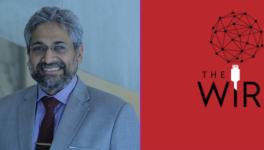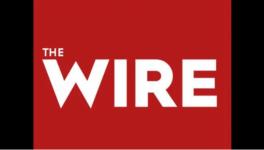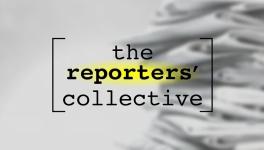EU's Media Act Steps up Fight For Press Freedom
Poland has come under fire for cracking down on the press — this Krakow demonstration is in favor of 'free media'
"A war doesn't start with weapons. A war starts with propaganda, with disinformation, and state controlled press," Belgian parliamentarian Katia Segers told DW.
The European Commission has now decided to tackle these problems head on with the European Media Freedom Act (EMFA), a major legal package to protect journalists and editorial independence, uphold press freedom and ultimately safeguard democracy in the European Union.
The EMFA, which is being launched on Friday, is a parting shot from Brussels to member states that have undermined their domestic media through surveillance, co-option and propaganda.
In her 2021 State of the European Union speech, European Commission President Ursula von der Leyen stressed the importance of stopping "those who threaten media freedom" in the EU.
"Media companies cannot be treated as just another business. Their independence is essential. Europe needs a law that safeguards this independence," she said.
Along those lines, media service providers will also have to ensure transparency of ownership. Under the EMFA they will be obliged declare who their shareholders are, a measure aimed at strengthening editorial independence.
Protecting journalists
According to Reporters Without Borders (RSF), press freedom in the European Union is "caught between two extremes." A free press flourishes in some EU nations like Norway, Denmark and Sweden, but faces serious risks in others such as Poland, Hungary and Greece.
Upon a hearing about the Greek spyware scandal in the European Parliament in Brussels last week, Greek journalists Thanasis Koukakis, Stavros Malichoudis and Eliza Triantafillou testified that they have become targets of state-sanctioned surveillance because of their work.
Meanwhile in Hungary and Poland, independent media outlets have experienced crackdowns by government authorities seeking to regulate their ownership and rein in media pluralism.
While Poland's state-owned oil company Orlen has taken over some of the country's media outlets, like regional newspaper Polska Press, Hungary's national media regulator, the Media Council, has silenced independent radio stations including Tilos Radio by refusing to renew its frequency license.
The Commission's EMFA is intended to address these threats, inlcuding to safeguard journalists and their families against the use of spyware and threats from authoritarian regimes.
Many journalists in Greece have become victims of government surveilence
Following the money
It will also ensure that any funding provided to public service media is "adequate and stable," and will roll out new regulations for state advertising in media.
"It needs to be known what the money's for," European Commissioner for Values and Transparency Vera Jourova, told Czech Radio last week. "We do not want states, as is already the practice in some cases, to publically finance some media outlets that then write nice articles about them."
RSF has also called on the European Commission to ensure that no member state "benefits from European solidarity" if it tramples on media freedom.
"The EMFA should include respect for media pluralism and independence among the conditionality criteria for the provision of European funds to Member States, in order to better respond to the serious and repeated press freedom violations in some of them," RSF said in a statement.
Addressing disinformation
Another critical element of upholding media freedom and increasing media trust in Europe is tackling disinformation.
"Democracies cannot stand idly while authoritarian regimes unload their propaganda on Europe," RSF secretary-general Christophe Deloire said in a statement.
The EU should develop a framework that "does not favor propaganda at the expense of free and independent media," rather one "that promotes freedom of expression, pluralism and reliability of information at the national level," he added.
EU commissioners Thierry Breton and Vera Jourova released a code of practice on disinformation last year.
Under the EMFA, the Commission has proposed setting up a new European Board for Media Services, comprised of national media authorities. Besides monitoring how national regulatory decisions affect the overall European media landscape, a key task of this board will be to tackle disinformation by ensuring information on online media paltforms, in line with the EU code of practice on disinformation.
"Right way forward”
While the European Commission's EMFA has yet to be discussed by EU nations before it is formally adopted across the bloc, Damian Tambini — an associate professor in the media and communications department at the London School of Economics, and author of the book "Media Freedom" — said creation of the EMFA could be viewed as "both a power grab and a way to protect democratic media freedom."
"But it might still be the best route forward — if these policies enjoy the trust and support of civil society. In developing a Media Freedom Act, the Commission is showing a willingness to boldly defend its founding principles of democracy," he wrote in an assessment on media freedom from September last year.
Belgian parliamentarian Segers shares a similar view.
"The EMFA will set up a framework to let journalists do their job by ensuring any form of aggression toward them is punished. The act will also ensure that media regulators work independently, and that EU nations strengthen public broadcasting.
"A strong public broadcaster guarantees qualitative, independent news, and sets the standards for commercial media," she told DW (which is also a public broadcaster).
"Right now, press freedom is of utmost importance for our democracy. So we must protect it."
Edited by: Ruairi Casey
Get the latest reports & analysis with people's perspective on Protests, movements & deep analytical videos, discussions of the current affairs in your Telegram app. Subscribe to NewsClick's Telegram channel & get Real-Time updates on stories, as they get published on our website.


























